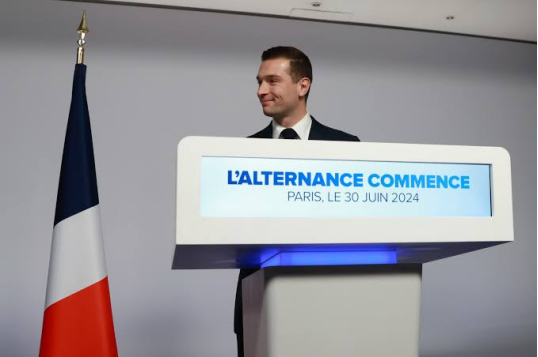
France’s First-Round Parliamentary Elections Conclude with High Stakes as Bardella Calls to Reject ‘Dangerous Far Left’
Fiona Nanna, ForeMedia News
3 minutes read. Updated 3:00PM GMT Mon, July 1, 2024
France recently concluded its first-round parliamentary election, marking a pivotal moment that could potentially usher in the country’s first far-right government since World War II, akin to the Nazi occupation era.
The election, held on Sunday, saw unusually high turnout, reflecting widespread public interest and concern. The second round is scheduled for July 7, with the outcome remaining uncertain amidst a complex political landscape.
Key contenders include the far-right National Rally, President Emmanuel Macron’s centrist coalition, and the New Popular Front coalition encompassing center-left, green, and hard-left factions. France’s electoral system, known for its intricacies and lack of direct proportionality, adds to the unpredictability of results.
President Macron, prompted by the far-right’s recent success in European Parliament elections, called for early national elections to avert potential legislative deadlock. Should the National Rally secure a parliamentary majority, Macron may face “cohabitation,” a challenging power-sharing scenario where 28-year-old National Rally President Jordan Bardella could potentially be appointed prime minister.
Bardella, signaling a stark departure from current policies, has opposed French military involvement in Ukraine—a stance at odds with Macron’s considerations—and expressed reluctance towards acquiring advanced weaponry capable of targeting Russia.
The upcoming second round promises to be decisive, with implications not only for France but also for European politics at large. Stay updated with our coverage as France navigates this critical electoral juncture.
Backlinks: French Politics Today, National Rally, President Emmanuel Macron

